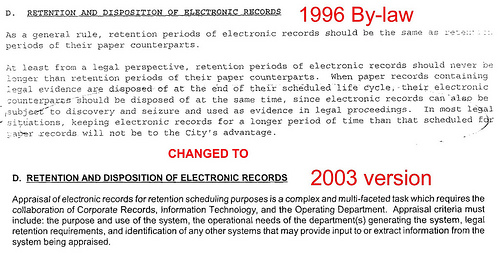Advanced Imaging Solutions / The Microfilm Depot
Document And Microfilm Scanning Service
Since 1984
Call Chris Ferrer For A Free Test And Quote 786-985-2047
10200 State Road 84 #228 Davie Florida 33024
sales@mdepot.com
 The Importance Of Maintaining Record Retention Schedules
The Importance Of Maintaining Record Retention Schedules
By Chris Ferrer
All businesses and companies should have Record Retention Schedules. This is a system whereby the companies are able to keep records for a specified length of time. It can be problematic for companies if they fail to do so as they may incur harsh penalties. The records will include emails, memoranda, emails and other types of important documents. Companies that adhere to the strict implementing of keeping these records will protect themselves from violating the law and there can be no suspicion of obstruction of justice. The saved data can also be handy should the need ever arise for defense in possible litigation.
In days gone by, records were kept when they were not been used for everyday use. Some of these reports would be kept off site or in the basement of the office building. The keyword to these reports is the evidence of any event that the company was involved in.
Someone at the corporation needs to collate, identify and classify the particular information. Information that can can specifically prove or disprove certain issues is very important. Information such as employee dossiers, tax records, corporate minutes, bylaws and accounting records are very important. A list of these reports should be made and as well as the details as to where this data is kept.
The person in charge of the data should find out from the legal department how long the company is legally obliged to retain specific data. The law applies differently to different data and the legal department will be able to help in this regard. Tax records for example have to be retained for thirty six months at least. There may be a statute of limitations that applies and this information can be obtained by speaking to the legal department. After this, the information may be recycled or archived.
If it is a big corporation, then it might be an idea to create a document retention task force team. This team will be responsible for overseeing the process of classifying and identifying the various data. Ideally, this team should consist of an information technology staff member, a member of corporate management and someone from the legal department.
The document should be reduced to writing. When all the various documents have been identified and classified, this information should be put in writing and then distributed to all staff members. The instructions regarding managing and keeping the records should be explicit in the document so that everyone is clear about the procedure.
Corporate staff members should be educated on this policy. Make sure all the staff members have access to the report and get them to sign it as well. Employees may need training as to the importance of this policy and if needed the company should provide such training. There should be a question and answer session for the employees so that there is no confusion regarding this matter.
It is important to store Record Retention Schedules where they will be easily accessible and where they are protected from any damage from the environment. Paper documents can be kept in an office in a filing cabinet. Larger companies have special rooms that safeguard the data especially against humidity and temperature.
